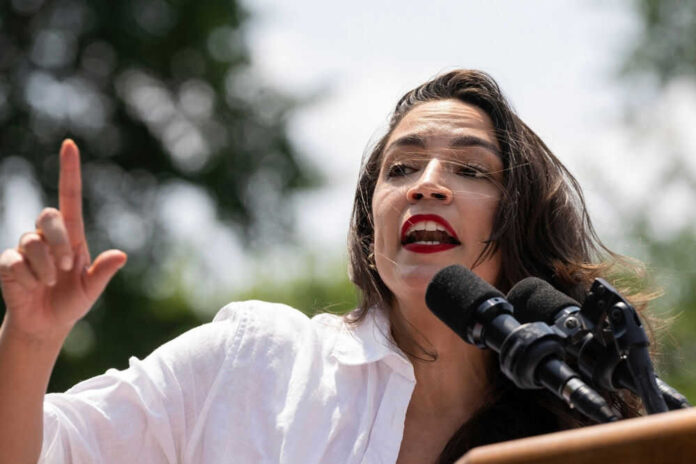
(RightWingJournal.com) – In a heated political clash, Rep. Alexandria Ocasio-Cortez accuses the GOP of exploiting young men’s insecurities, reigniting debates on masculinity and political influence.
Story Overview
- AOC criticizes the GOP for appealing to young men through “insecure” masculinity.
- Her comments spark backlash from conservative figures and media.
- The debate highlights gender politics and youth outreach strategies.
- Implications for future elections as parties vie for young male voters.
AOC’s Controversial Remarks
During a CNN town hall on October 15, 2025, Rep. Alexandria Ocasio-Cortez claimed Republicans effectively garnered young male support by promoting an “insecure” form of masculinity. This brand of masculinity, she argued, thrives on domination over marginalized groups. Her stance quickly ignited controversy, drawing criticism from conservative commentators and Republican politicians, who accused her of demonizing men and misrepresenting young male voters’ motivations.
Critics argue AOC’s remarks highlight a broader trend where Democrats are perceived as alienating young men by labeling them as toxic or insecure. This narrative, according to conservative voices, overlooks the genuine concerns young men have regarding their role in society and the political landscape. AOC’s comments were met with a swift response from figures like Sen. Tommy Tuberville, who defended young male voters and criticized Democrats for driving them toward the GOP.
The Political and Cultural Debate
The controversy underscores a larger political and cultural debate over masculinity, gender roles, and party messaging. The concept of “toxic masculinity” has become a flashpoint in American politics, with both parties vying to capture the support of young men. The GOP’s messaging, according to AOC, exploits these young men’s insecurities, while conservatives argue Democrats’ rhetoric vilifies men, pushing them toward conservative ideologies.
This debate is further complicated by the role of social media in amplifying partisan messages targeting young men. The rise of platforms like Twitter and YouTube has allowed for the rapid dissemination of political narratives, influencing perceptions and driving political engagement among younger demographics. The intersection of gender politics and electoral strategy remains a contentious battleground as parties seek to frame their narratives to appeal to young male voters.
Impact on Future Elections
The implications of this debate extend beyond immediate partisan rhetoric. In the short term, it intensifies polarization around gender issues, but in the long term, it could lead to a realignment of young male voters. If Democrats are perceived as out of touch with this demographic, it could impact their electoral prospects in future elections, including the upcoming 2026 midterms.
Both parties must navigate these complex dynamics carefully. For Democrats, addressing issues of gender equity without alienating young men is crucial. For Republicans, maintaining engagement with young male voters while countering accusations of promoting toxic masculinity is equally important. The outcome of this debate may influence party platforms, candidate selection, and broader discussions about gender and identity politics.
Copyright 2025, rightwingjournal.com





























